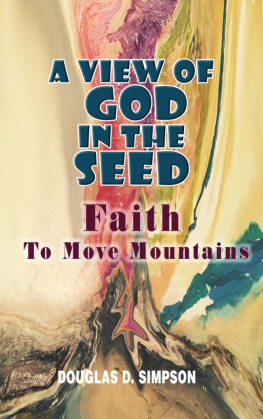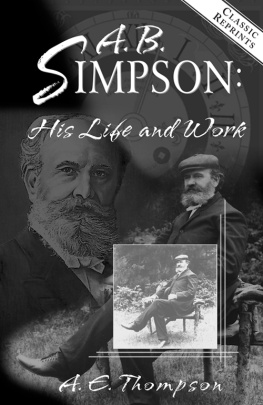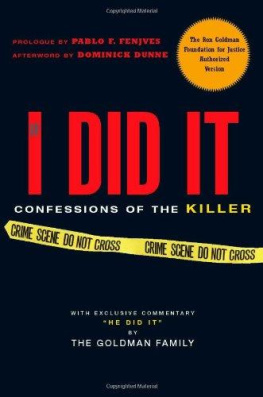Blowback
Americas Recruitment of Nazis, and Its Destructive
Impact on Our Domestic and Foreign Policy
Christopher Simpson
With a New Introduction by the Author on CIA Declassification of Nazi-Related Records

For my mother and father
Contents
Series Introduction
I
We the people seem to have the freest book trade in the world. Certainly we have the biggest. Cruise the mighty Amazon, and you will see so many books for sale in the United States today as would require more than four hundred miles of shelving to display thema bookshelf that would stretch from Bostons Old North Church to Fort McHenry in South Baltimore.
Surely that huge catalog is proof of our extraordinary freedom of expression: The US government does not ban books, because the First Amendment wont allow it. While books are widely banned in states like China and Iran, no book may be forbidden by the US government at any level (although the CIA censors books by former officers). Where books are banned in the United States, the censors tend to be private organizations-church groups, school boards, and other local (busy)bodies roused to purify the public schools or libraries nearby.
Despite such local prohibitions, we can surely find any book we want. After all, its easy to locate those hot works that once were banned by the government as too obscene to sell, or mail, until the courts ruled otherwise on First Amendment groundsFanny Hill, Howl, Naked Lunch. We also have no trouble finding books banned here and there as antifamily, Satanic, racist, and/or filthy, from Huckleberry Finn to Heather Has Two Mommies to the Harry Potter series, just to name a few.
II
And yet, the fact that those bold books are all in print, and widely read, does not mean that we have the freest book trade in the world. On the contrary: For over half a century, Americas vast literary culture has been disparately policed, and imperceptibly contained, by state and corporate entities well placed and perfectly equipped to wipe out wayward writings. Their ad hoc suppressions through the years have been far more effectual than those quixotic bans imposed on classics like The Catcher in the Rye and Fahrenheit 451. For every one of those bestsellers scandalously purged from some provincial school curriculum, there are many others (we cant know how many) that have been so thoroughly erased that few of us, if any, can remember them, or have ever heard of them.
How have all those books (to quote George Orwell) dropped into the memory hole in these United States? As America does not ban books, other meansless evident, and so less controversialhave been deployed to vaporize them. Some almost never made it into print, as publishers were privately warned off them from on high, either on the grounds of national security or with blunt threats of endless corporate litigation. Other books were signed enthusiasticallythen dumped, as their own publishers mysteriously failed to market them, or even properly distribute them. But it has mainly been the press that stamps out inconvenient books, either by ignoring them, ormost oftenlaughing them off as conspiracy theory, despite their soundness (or because of it).
Once out of print, those books are gone. Even if some few of us have not forgotten them, and one might find used copies here and there, these books have disappeared. Missing from the shelves and never mentioned in the press (and seldom mentioned even in our schools), each book thus neutralized might just as well have been destroyed en masseor never written in the first place, for all their contribution to the public good.
III
The purpose of this series is to bring such vanished books to lifefirst life for those that never saw the light of day, or barely did, and second life for those that got some notice, or even made a splash, then slipped too quickly out of print, and out of mind.
These books, by and large, were made to disappear, or were hastily forgotten, not because they were too lewd, heretical, or unpatriotic for some touchy group of citizens. These books sank without a trace, or faded fast, because they tell the sort of truths that Madison and Jefferson believed our Constitution should protecttruths that the people have the right to know, and needs to know, about our government and other powers that keep us in the dark.
Thus the works on our Forbidden Bookshelf shed new lightfor most of us, its still new lighton the most troubling trends and episodes in US history, especially since World War II: Americas broad use of former Nazis and ex-Fascists in the Cold War; the Kennedy assassinations, and the murders of Martin Luther King Jr., Orlando Letelier, George Polk, and Paul Wellstone; Ronald Reagans Mafia connections, Richard Nixons close relationship with Jimmy Hoffa, and the mobs grip on the NFL; Americas terroristic Phoenix Program in Vietnam, US support for South Americas most brutal tyrannies, and CIA involvement in the Middle East; the secret histories of DuPont, ITT, and other giant US corporations; and the long war waged by Wall Street and its allies in real estate on New York Citys poor and middle class.
The many vanished books on these forbidden subjects (among others) altogether constitute a shadow history of Americaa history that We the People need to know at last, our country having now become a land with billionaires in charge, and millions not allowed to vote, and everybody under full surveillance. Through this series, we intend to pull that necessary history from the shadows at long lastto shed some light on how America got here, and how we might now take it somewhere else.
Mark Crispin Miller
Introduction
From 1999 through 2007 I served on a historians advisory panel for the US National Archives and Records Administration (NARA). The group met once or twice a year at an inexpensive hotel in Alexandria, Virginia, to discuss recommendations for declassifying tens of millions of pages of still-secret, fifty- and sixty-year-old US government records that might include information about the Holocaust and the role of Nazi and Axis war criminals in US Cold War covert operations.
The advisory panel was a low-status group. Unlike the historians hired to explore the records themselves, the committee did not have (or declined to undergo) security clearances required by NARA and other agencies in order to view old records. With the exception of the panels chair, Dr. Gerhard Weinberg, the panel was sometimes treated with open contempt by the representatives from federal agencies that we were supposedly advising. Nevertheless, we were authorized to ask questions about the competence and effectiveness of the declassification review project. In that way, the little committee did succeed in helping to rattle the cages of several powerful federal bureaucracies, including the CIA.
There was also a consolation prize offered to these advisors in addition to the hotel coffee and Danish pastries. Chief US archivist Allen Weinstein frequently repeated his promise that NARA would publish written critiques from the advisors as part of the official report to Congress about the mechanics of the declassification effort, which was our area of expertise.
I wrote the critique (which now forms the contents of this book) of how federal agencies had handled their responsibilities under the relevant laws. I delivered it by the deadline. NARA first responded with a fog of delays, and then with silence.
The report was issued a year later without the critique, and without the courtesy of a note acknowledging how and why the piece had been spiked. I eventually learned from three different sources involved in the process that Allen Weinstein had made the decision to bar its publication. That was disappointing, of course, but not especially surprising. It is worthy of note only because it is another example of how political administrations in Washington, DC, routinely suppress reports they find disagreeable. Indeed, performing that type of ideological border patrol is an unspoken but tacitly understood part of the job description for government and private-sector managers.
Next page
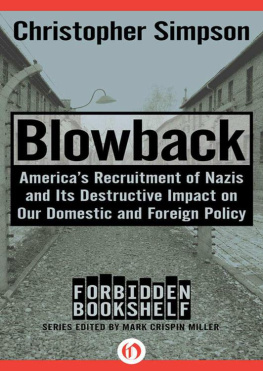
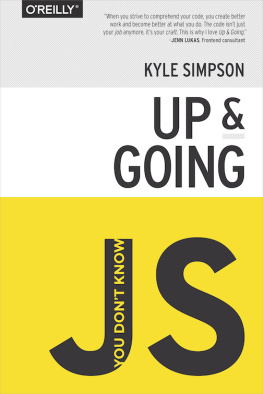
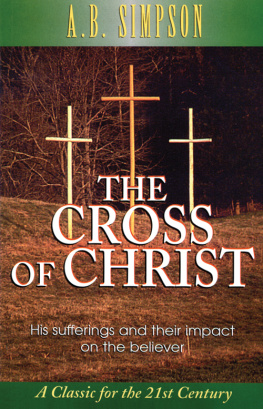


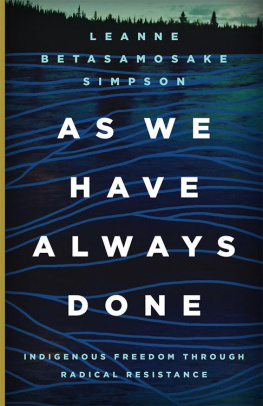

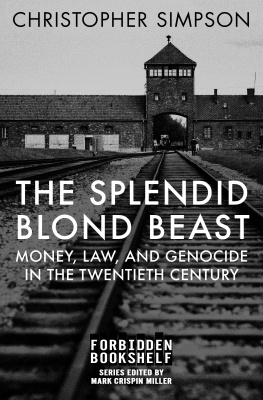
![Kyle Simpson [Kyle Simpson] - You Don’t Know JS: Up & Going](/uploads/posts/book/121420/thumbs/kyle-simpson-kyle-simpson-you-don-t-know-js.jpg)
